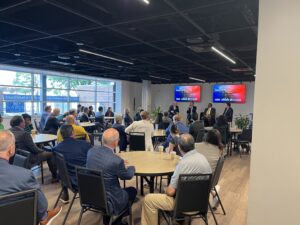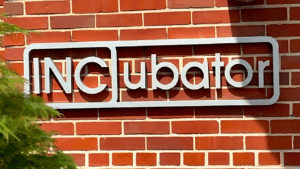Josué Vega, Marketing & Communications Intern
“The driving force of a restaurant is the employees,” Miguel Morales says. “People save businesses, but businesses can’t always save people.”
Morales considers his employees so crucial that when the pandemic hit and began shutting down restaurants, he put all his effort behind the business machinery to save the jobs of 460 of his 461 employees.
Morales owns 1885 Grill, a southern coastal restaurant with three locations, two of them in Tennessee (St. Elmo and Ooltewah) and one in Georgia (Acworth). He also owns The Feed Co. as well as the upcoming Frasier Five and Dime.
So the moment he realized the pandemic would close restaurants, Morales began brainstorming with his business partners. He knew that if he and his staff members were scared, his employees were already terrified. With a prayer on his lips, he gathered his CPA, lawyer, bookkeeper, and banker. It was a strange, eerie feeling, as only a week earlier he had scoffed at the idea that businesses would be shutting down. Now, as he made plans with this advisors, the inevitable was looming before them like a greasy giant.
With 30 years of restaurant experience, Morales knew how to shut down for holidays like Thanksgiving and Christmas, which gave them time for a thorough cleaning and a short break for employees. This time, he knew the focus had to be employees first.

Employee at The Feed Co.
After solidifying their plans, Morales called together the employees to inform them. They would be furloughed in a day, Morales said. With the incoming shutdown, unemployment offices would be swarmed and checks would barely filter through. By furloughing them, Morales was able to get his employees on unemployment immediately and still have them return to work once the shutdown was over.
But they wouldn’t be alone during their furlough, Morales assured them. With advisors’ help, Morales created a nonprofit LLC to provide support services to assist his employees. If they ever needed help with expenses their unemployment didn’t cover, the nonprofit would be there to assist them. Morales also divided up his employees into groups under managers. These managers would call their employees daily to check in on them. At times these calls would run up to even an hour and a half. For those who needed this, employees could talk through their concerns and struggles.
And then there was the food. Even non-perishables would outlive their sell-by date with a closing this long. Where others might have seen only waste, Morales saw a chance to marry need with supply. He divided bulk items into smaller food portions, and set up a free market. Employees would come in during assigned time periods to select what was needed. Chefs shared recipes to guide choices for those less experienced in the home kitchen. And, the Food Bank gladly accepted what remained.

Morales working with the community.
“‘We are all in this together—that’s why it’s not scary,’’ Morales says he told everyone. “‘You will not go down until all our accounts are empty, including our personal ones.’” Hugs of appreciation and tears of gratitude ended the meeting.
Eight weeks after shutting down, the much-anticipated call came—time to return to work. Joyously, the employees came back, thankful they had made it through the shutdown and retained their jobs. Of 461 employees, only one person–a student who had moved away–declined to return.
Morales had done it. He had saved his employees and his business.
Challenges remain, of course.
“Production levels are low in food industries,” Morales says. “They’re running food shortages everywhere, so the food can run up three-to-five times the regular price. For example, whereas the prices used to be $2.20-$2.50 a scallop, now they're around $7.50 a piece. A $12 appetizer would be a $40 appetizer at that rate, so we had to take some things off the menu.”
While the challenges are still ongoing, Morales and his team have more confidence than ever. “We’re tighter,” Morales says. “We’re more of a family. When you do something like this together, you know what people are made of.”







